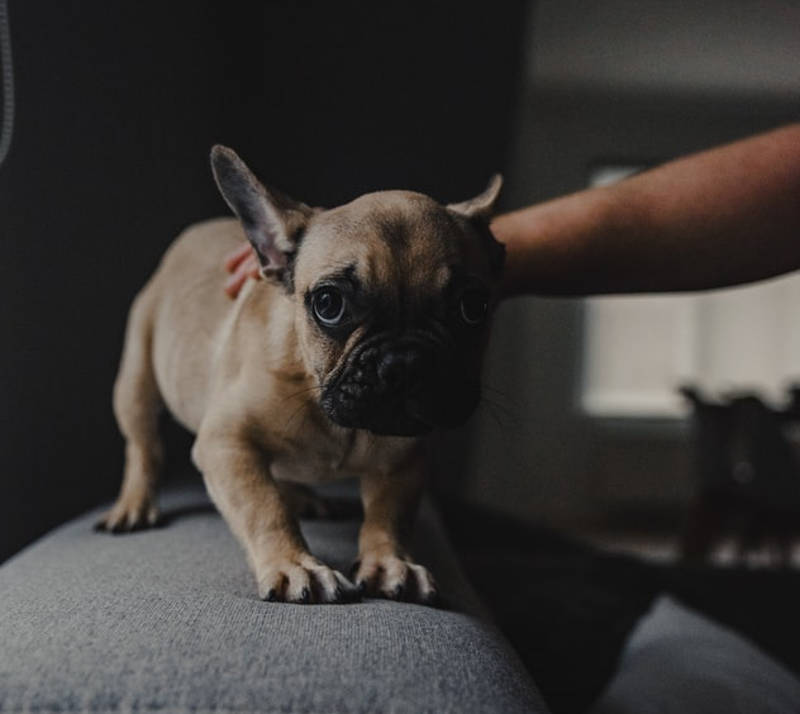The pandemic has certainly caused a ripple effect on the lives of people everywhere, and it has also had a profound effect on our pets. One of the biggest problems emerging for dogs in our community right now is the lack of adequate socialization. This is especially worrisome in puppies, as socialization is critical for their development.
Socialization is important for teaching dogs how to behave in different environments. Unfamiliar settings can be daunting for many dogs, however with the right positive exposure, new friends and new places can be welcomed as fun, exciting, and enriching.
Your dog’s behaviour is a unique mix of nature and nurture. Genetics play a big part in shaping their personality, but so does the exposure to the world around them. Positive interactions involving a wide variety of locations, animals, humans, and sounds can be critical for shaping balanced canine behaviour.
Dogs who have been well socialized typically play well in group settings, are easily trainable, and make very pleasant family dogs, too.
But what happens when a dog is under-socialized?
“The biggest problem I see with dogs who are under-socialized is that they’re fearful of things they were not exposed to during the (puppy) imprinting stage. This includes new people, dogs, noises, and environments,” said Jodie Hawker, owner of Happy Paws Canine Solutions, a Positive Reinforcement dog trainer based in Meaford.
General Fearfulness
Dogs who have not been adequately exposed to real world settings in their early months are more likely to develop fearfulness. Commonly, this is because new experiences can be scary, and this may engage a dog’s fight-or-flight instincts, sending many fearful dogs into a cower. For example, a car horn, or a trash can falling over may be enough to induce an anxiety-laden fear reaction.
If left unchecked, fearful behaviour can manifest into long-term behavioural complications, such as separation anxiety, and aggression towards people or animals. The longer a dog expresses these types of fear-based behaviours, the more difficult it can be to remedy.
It is important to note that puppies can also experience fearfulness if they are over-socialized, forced into environments too quickly or too often. Always pay close attention to your puppy’s body language in new experiences to determine their individual comfort threshold.
Reactivity
Reactivity occurs when dogs overreact to stimuli in their environment. While reactivity commonly looks like aggression, it usually isn’t. With most dogs, reactivity is fear-based, and happens due to a lack of impulse control.
The most prevalent form of reactivity is known as leash reactivity: when dogs become more protective or act in a way that would be portrayed as aggressive towards other animals or people while on leash.
Another example of reactivity is resource guarding, where a dog lashes out at others who come near their food, toys, territory, or family member.
Reactivity is a fight-or-flight reaction, rooted in fear. While it does not begin as aggression, it can turn into aggression very easily, compounding the problem even further.
Sensitivity to Sounds
For dogs who have had insufficient exposure to noises, even the simplest of sounds can cause fear-based reactions. This behaviour can be caused by the simplest things such as the oven beeping, a phone ringing, or a truck driving by.
Alternatively, even the most well-socialized dogs can have issues with sounds. Extreme sounds such as smoke alarms, fireworks, and thunder induce fear-based reactions for the vast majority of dogs, and are considered exceptions to the rule.
Fear of Travel
Dogs who have not spent enough quality time in the car may have a great deal of angst when it comes to travelling. This can be rather burdensome if you wish to bring your dog on a family road trip, for example.
Travel stress and anxiety can result in profuse salivation, excessive barking, pacing and restlessness, vomiting, urinating and defecating, and more.
Difficulty Being Handled
A crucial element of puppy socialization is getting used to being touched. This includes check-ups and examinations at the vet, having paws handled during nail trims, being bathed at the groomers, and even being petted by children.
Under-socialized dogs can be difficult to handle, even by the most experienced pet professionals. Fear-based behaviours escalate quickly in stressful situations like pet grooming, making even the simplest grooming tasks a distressing event for both dog and groomer.
As we continue to live within our socially responsible means, the COVID-19 pandemic has seriously limited options for maintaining our dog’s healthy social habits. If your dog is presenting any of the above unwanted behaviours, be sure to speak with a qualified dog trainer for assistance. Positive reinforcement behaviour modification is your best bet to help put fear-based behaviours in the past.
Brandon Forder, known as The Pet Expert, is vice-president of Canadian Pet Connection, an industry leader in healthy pet lifestyles. Brandon is certified in pet nutrition, and has more than twenty-five years’ experience specializing in pet health and behaviour. He has written hundreds of informative pet-related articles for newspapers, magazines, radio, and the popular Ask the Pet Expert Blog. Brandon is highly skilled in pet problem solving, and enjoys teaching others about smart and responsible pet ownership. To learn more, visit www.CanadianPetConnection.ca.












